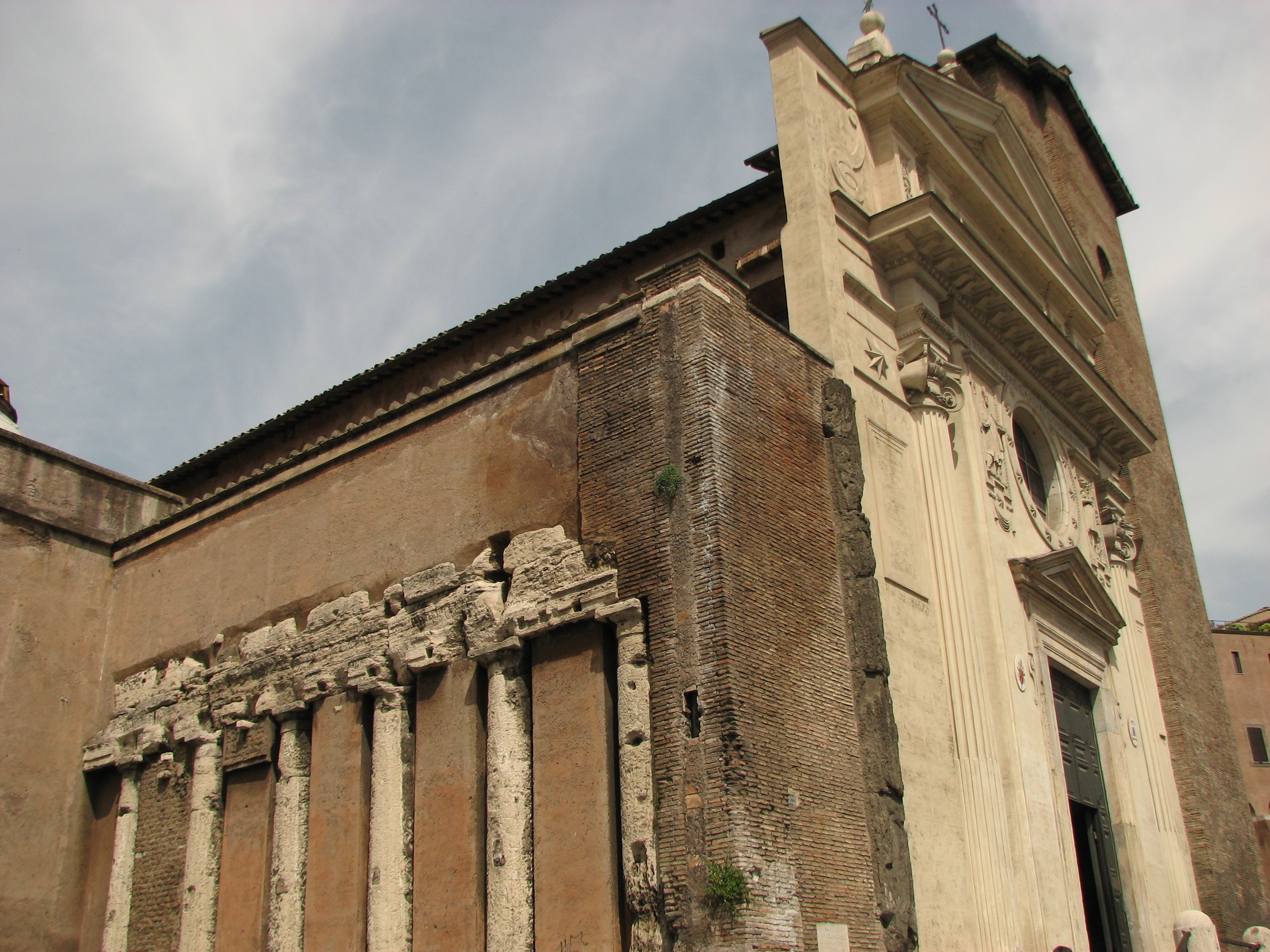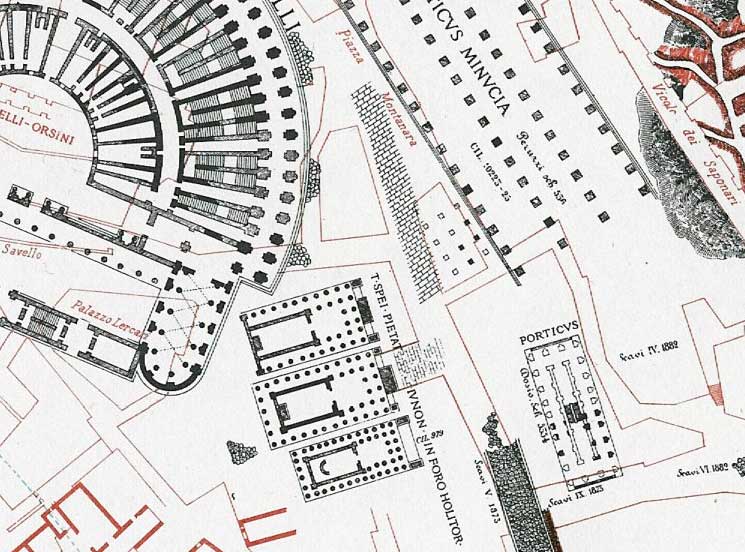Spes (goddess) on:
[Wikipedia]
[Google]
[Amazon]
 Spes (
Spes (


 During the
During the
 Spes (
Spes (Latin
Latin ( or ) is a classical language belonging to the Italic languages, Italic branch of the Indo-European languages. Latin was originally spoken by the Latins (Italic tribe), Latins in Latium (now known as Lazio), the lower Tiber area aroun ...
for "Hope
Hope is an optimistic state of mind that is based on an expectation of positive outcomes with respect to events and circumstances in one's own life, or the world at large.
As a verb, Merriam-Webster defines ''hope'' as "to expect with confid ...
") was worshipped as a goddess
A goddess is a female deity. In some faiths, a sacred female figure holds a central place in religious prayer and worship. For example, Shaktism (one of the three major Hinduism, Hindu sects), holds that the ultimate deity, the source of all re ...
in ancient Roman
In modern historiography, ancient Rome is the Roman people, Roman civilisation from the founding of Rome, founding of the Italian city of Rome in the 8th century BC to the Fall of the Western Roman Empire, collapse of the Western Roman Em ...
religion
Religion is a range of social system, social-cultural systems, including designated religious behaviour, behaviors and practices, morals, beliefs, worldviews, religious text, texts, sanctified places, prophecies, ethics in religion, ethics, or ...
. Numerous temples to Spes are known, and inscriptions indicate that she received private devotion as well as state cult.
Republican Hope


 During the
During the Republic
A republic, based on the Latin phrase ''res publica'' ('public affair' or 'people's affair'), is a State (polity), state in which Power (social and political), political power rests with the public (people), typically through their Representat ...
, a temple to "ancient Hope" () was supposed to have been located near the Praenestine Gate. It was associated with events that occurred in the 5th century BC, but its existence as anything except perhaps a private shrine has been doubted.
A well-documented Temple of Spes was built by Aulus Atilius Calatinus
Aulus Atilius Caiatinus (or Calatinus; 258–241 BC) was a Roman general and statesman who achieved prominence for his military activities during the First Punic War against Carthage. As consul in 258 BC, he enjoyed several successes in Sicily, ...
along with Fides, as the result of vows () made to these goddesses during the First Punic War
The First Punic War (264–241 BC) was the first of three wars fought between Rome and Carthage, the two main powers of the western Mediterranean in the early 3rd century BC. For 23 years, in the longest continuous conflict and grea ...
. This was built at the vegetable market () just outside the Carmental Gate. It was twice burnt down and restored, first in 213 BC and then again in AD 7.
At Capua
Capua ( ; ) is a city and ''comune'' in the province of Caserta, in the region of Campania, southern Italy, located on the northeastern edge of the Campanian plain.
History Ancient era
The name of Capua comes from the Etruscan ''Capeva''. The ...
in 110 BC, a temple was built to the triad of Spes, Fides, and Fortuna
Fortuna (, equivalent to the Greek mythology, Greek goddess Tyche) is the goddess of fortune and the personification of luck in Religion in ancient Rome, Roman religion who, largely thanks to the Late Antique author Boethius, remained popular thr ...
.
Imperial Hope
Spes was one of the divine personifications in theImperial cult
An imperial cult is a form of state religion in which an emperor or a dynasty of emperors (or rulers of another title) are worshipped as demigods or deities. "Cult (religious practice), Cult" here is used to mean "worship", not in the modern pejor ...
of the Virtues. Spes Augusta was Hope associated with the capacity of the emperor
The word ''emperor'' (from , via ) can mean the male ruler of an empire. ''Empress'', the female equivalent, may indicate an emperor's wife (empress consort), mother/grandmother (empress dowager/grand empress dowager), or a woman who rules ...
as ''Augustus
Gaius Julius Caesar Augustus (born Gaius Octavius; 23 September 63 BC – 19 August AD 14), also known as Octavian (), was the founder of the Roman Empire, who reigned as the first Roman emperor from 27 BC until his death in A ...
'' to ensure blessed conditions.
Like Salus ("Salvation, Security"), Ops ("Abundance, Prosperity"), and Victoria ("Victory"), Spes was a power that had to come from the gods, in contrast to divine powers that resided within the individual such as Mens ("Intelligence"), Virtus
() was a specific virtue in ancient Rome that carried connotations of valor, masculinity, excellence, courage, character, and worth, all perceived as masculine strengths. It was thus a frequently stated virtue of Roman emperors, and was perso ...
("Virtue"), and Fides ("Faith, Fidelity, Trustworthiness").
Greek Elpis
The Greek counterpart of Spes was Elpis, who by contrast had no formal cult in Greece. The primarymyth
Myth is a genre of folklore consisting primarily of narratives that play a fundamental role in a society. For scholars, this is very different from the vernacular usage of the term "myth" that refers to a belief that is not true. Instead, the ...
in which Elpis plays a role is the story of Pandora
In Greek mythology, Pandora was the first human woman created by Hephaestus on the instructions of Zeus. As Hesiod related it, each god cooperated by giving her unique gifts. Her other name—inscribed against her figure on a white-ground '' ky ...
. The Greeks had ambivalent or even negative feelings about "hope", with Euripides
Euripides () was a Greek tragedy, tragedian of classical Athens. Along with Aeschylus and Sophocles, he is one of the three ancient Greek tragedians for whom any plays have survived in full. Some ancient scholars attributed ninety-five plays to ...
describing it in his ''Suppliants'' as "delusive" and stating "it has embroiled many a State",Euripedes, ''Suppliants'', l. 479. and the concept was unimportant in the philosophical systems of the Stoics
Stoicism is a school of Hellenistic philosophy that flourished in ancient Greece and Rome. The Stoics believed that the universe operated according to reason, ''i.e.'' by a God which is immersed in nature itself. Of all the schools of ancient ...
and Epicureans
Epicureanism is a system of philosophy founded 307 BCE based upon the teachings of Epicurus, an ancient Greek philosopher. Epicurus was an atomist and materialist, following in the steps of Democritus. His materialism led him to religious s ...
.
See also
*Hope
Hope is an optimistic state of mind that is based on an expectation of positive outcomes with respect to events and circumstances in one's own life, or the world at large.
As a verb, Merriam-Webster defines ''hope'' as "to expect with confid ...
, the concept
* Piety
Piety is a virtue which may include religious devotion or spirituality. A common element in most conceptions of piety is a duty of respect. In a religious context, piety may be expressed through pious activities or devotions, which may vary amon ...
(), Luck
Luck is the phenomenon and belief that defines the experience of improbable events, especially improbably positive or negative ones. The Naturalism (philosophy), naturalistic interpretation is that positive and negative events may happen at a ...
(), Faithfulness
Faithfulness means unfailingly remaining loyal to someone or something, and putting that loyalty into consistent practice regardless of extenuating circumstances. It may be exhibited, for example, by a husband or wife who does not engage in se ...
() as Roman goddesses
References
Citations
Bibliography
* *Further reading
* Clark, Mark Edward. "Spes in the Early Imperial Cult: 'The Hope of Augustus'." ''Numen'' 30.1 (1983) 80–105. {{Roman religion Roman goddesses Personifications in Roman mythology Hope